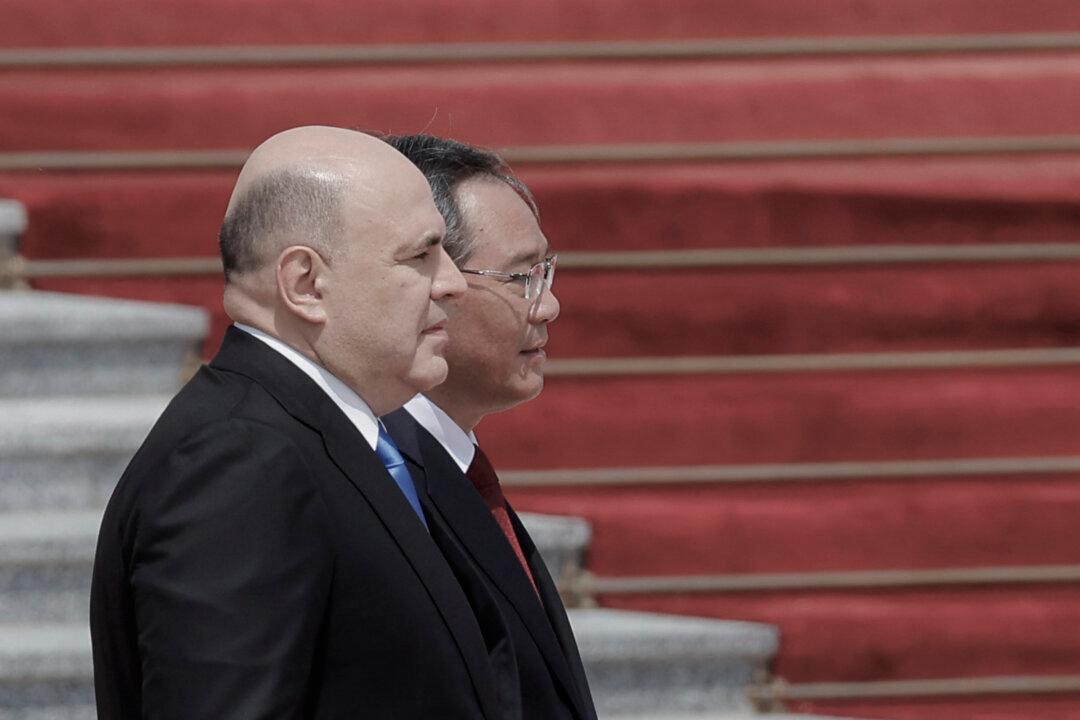BEIJING—Russia’s prime minister signed a set of agreements with China on Wednesday during a trip to Beijing, describing bilateral ties at an unprecedented high, despite criticism of their relationship in the West as the war in Ukraine drags on.
Prime Minister Mikhail Mishustin, the highest-ranking Russian official to visit Beijing since Moscow sent thousands of troops to Ukraine in February 2022, held talks with Chinese leader Xi Jinping and Premier Li Qiang.





